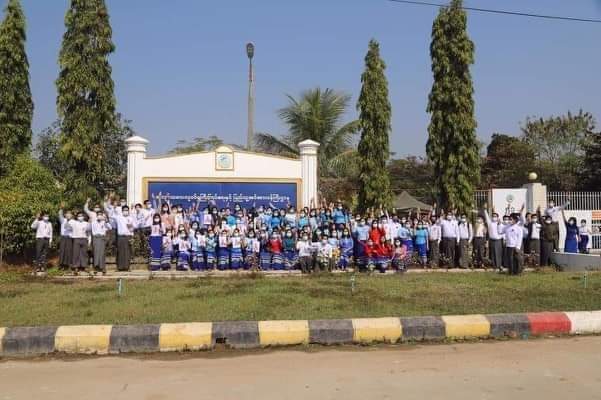Those making monthly social security payments to the Ministry of Labor’s Social Security Board (SSB) have found that benefits have dried up completely following the military coup, as labor activists fear the junta may have embezzled a welfare fund worth an estimated US$168 million.
Before the coup, the SSB allowed citizens to contribute a percentage of their salary to the government to be held in a social security fund, providing cover for events such as medical emergencies, maternity leave, and periods of unemployment.
But now, a drying-up of funds is causing labor activists to worry that savings may be being misappropriated by a junta regime which has thus far utilized all means to extend its power.
“Many chose to stay neutral after the coup—if they won’t return the assets taken from our pagodas, I’m sure the worker’s social security fund will also no longer exist,” U Ye Kyaw Thu, labor rights activist, told DVB.
Over a million Burmese workers contribute 2% of their monthly salaries to the Social Security Board (SSB), which is in turn bolstered by a further 3% supplied by their employers.
Before the coup, the SSB publicly announced that payments to its fund totalled roughly K15 billion (US$ 8.4 million) monthly. Of this, the board said that around K5 billion (US$2.8) is spent each month on outlays to cover benefits provided to its subscribers whilst the remainder is invested: according to labor rights activists, the NLD administration had saved a pot of almost K300 billion (US$168 million) for the social security scheme.
“I’m not sure that [junta authorities] have been using these funds diligently during this period—they even took the money from pagodas and spent it with interest. They may well be using the SSB money for their own needs as it belongs to the ministry,” Ko Nay Lin Aung, deputy-secretary of the Myanmar Infrastructure, Craft and Service (MICS) labor organization said.
Pre-coup—during the first two phases of Burma’s COVID-19 outbreak—Burma’s civilian government had put two tranches of K50 billion towards subsidizing the nation’s workers and providing loans to employers.
Since then, activists say, the fund has mysteriously dried up.
“Nobody has received SSB benefits—from the coup until now. They said we can go to the SSB office if we are not satisfied with this. Technically, we now don’t have any benefits at all,” a garment worker told DVB.
Burma’s economy has gone into freefall following the coup, with most relying on dwindling savings and donations to get by. When the third wave of COVD-19 hit, the junta, unlike its predecessor, provided no assistance to those who had long saved with the SSB.
DVB repeatedly contacted the Social Security Board over these allegations, but has yet to receive a reply.



